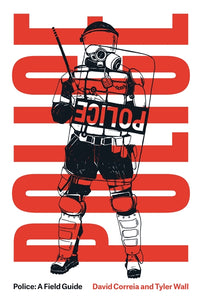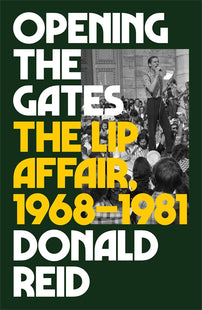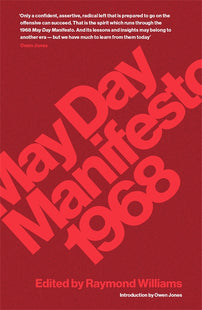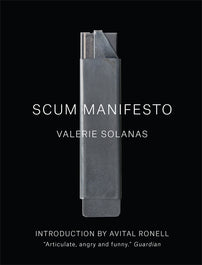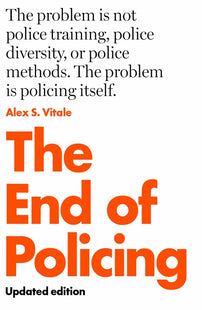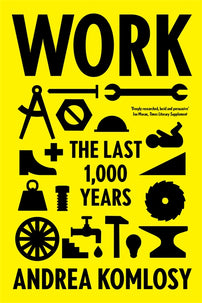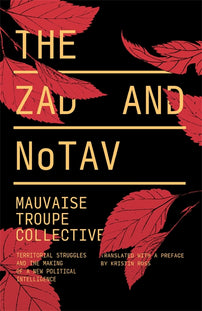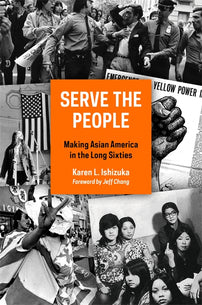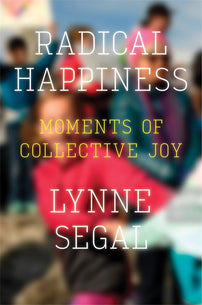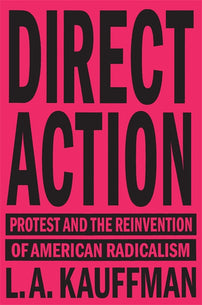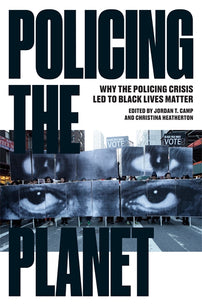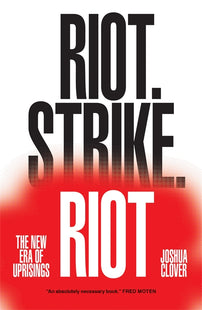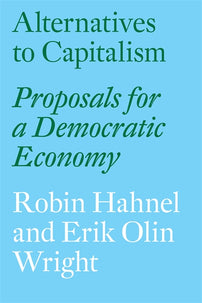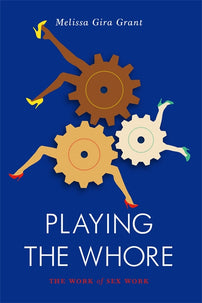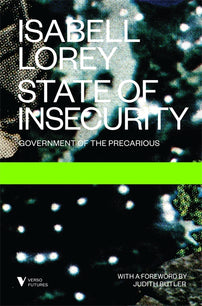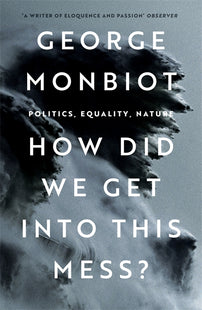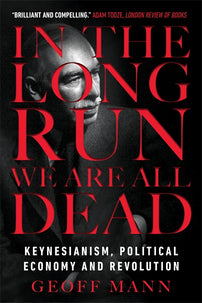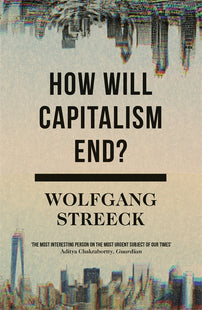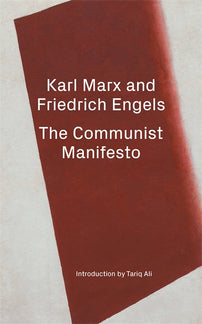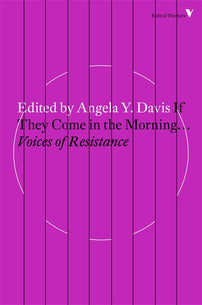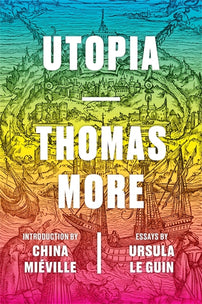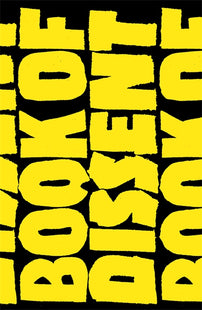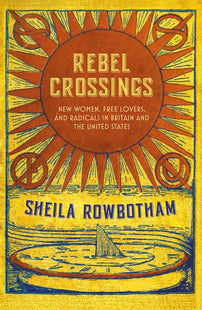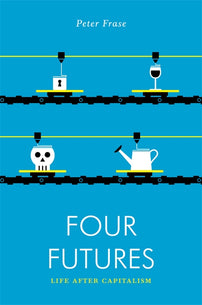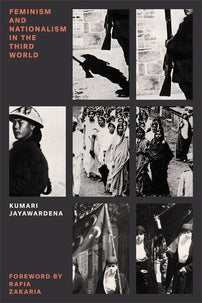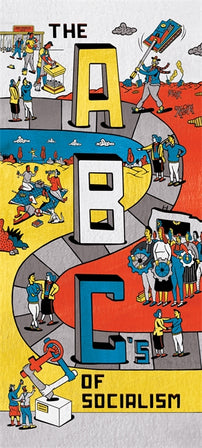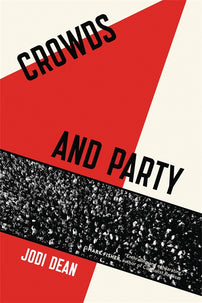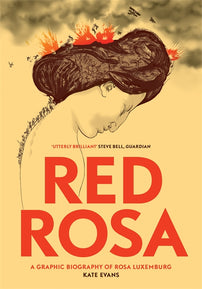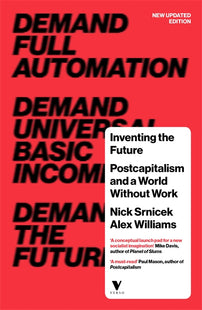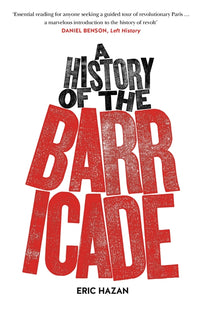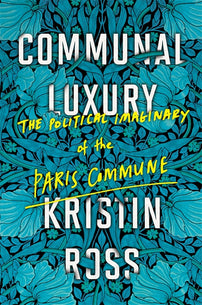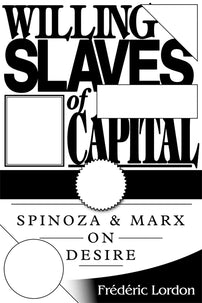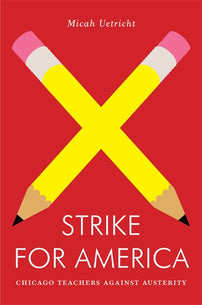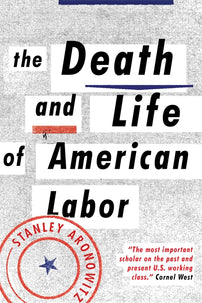Verso May Day reading!
We bring you a selection of reading for May Day: featuring books on riots, policing, direct action, conceptions of work, and more!

"As long as the struggle of the workers against the bourgeoisie and the ruling class continues, as long as all demands are not met, May Day will be the yearly expression of these demands."
– Rosa Luxemburg
May 1st marks International Workers' Day, a festival of working-class self-organization stretching back over 130 years. It was originally inaugurated to commemorate the Haymarket Massacre of 1886 in Chicago, where a bomb thrown during a worker's strike kicked off a period of anti-labor hysteria.
To celebrate the rights of all workers to organize for higher pay and better working conditions we present a selection of books looking at policing, riots, the history of tear gas, the changing conceptions of work, a history of cowboy strikes, and a look back at direct action from the 60s to today.
Plus, see all our May Day Reading from the Verso Archive covering care work, sex work, black liberation & more; from Angela Davis, Gail Lewis, Melissa Gira Grant, Isabell Lorey, and Kristin Ross. Read all the essays here.
[book-strip index="1" style="buy"]Police: A Field Guide is an illustrated handbook to the methods, mythologies, and history that animate today’s police. It is a survival manual for encounters with cops and police logic, whether it arrives in the shape of officer friendly, Tasers, curfews, non-compliance, or reformist discourses about so-called bad apples.
[book-strip index="2" style="buy"]How the occupation of a watch factory became one of the iconic labor struggles after May 1968.
AVAILABLE IN THE UK ONLY.
[book-strip index="3" style="buy"]Anniversary edition of the classic political manifesto.
AVAILABLE IN THE UK ONLY. US EDITION AVAILABLE ON MAY 8.
[book-strip index="4" style="buy"]SCUM Manifesto was considered one of the most outrageous, violent and certifiably crazy tracts when it first appeared in 1968. Valerie Solanas, the woman who shot Andy Warhol, self-published this work just before her rampage against the king of Pop Art made her a household name and resulted in her confinement to a mental institution. But for all its vitriol, it is impossible to dismiss as unhinged. In fact, the work has indisputable prescience, not only as a radical feminist analysis light-years ahead of its timepredicting artificial insemination, ATMs, a feminist uprising against under-representation in the artsbut also as a stunning testament to the rage of an abused and destitute woman.
[book-strip index="5" style="buy"]An engrossing century-spanning narrative, Tear Gas is the first history of this weapon, and takes us from military labs and chemical weapons expos to union assemblies and protest camps, drawing on declassified reports and witness testimonies to show how policing with poison came to be.
[book-strip index="6" style="buy"]This book attempts to spark public discussion by revealing the tainted origins of modern policing as a tool of social control. It shows how the expansion of police authority is inconsistent with community empowerment, social justice—even public safety. Drawing on groundbreaking research from across the world, and covering virtually every area in the increasingly broad range of police work, Alex Vitale demonstrates how law enforcement has come to exacerbate the very problems it is supposed to solve.
[book-strip index="7" style="buy"]Looking at labour history around the globe from the thirteenth to the twenty-first centuries, Komlosy sheds light on both discursive concepts as well as the concrete coexistence of multiple forms of labour—paid and unpaid, free and unfree. From the economic structures and ideological mystifications surrounding work in the Middle Ages, all the way to European colonialism and the industrial revolution, Komlosy’s narrative adopts a distinctly global and feminist approach, revealing the hidden forms of unpaid and hyper-exploited labour which often go ignored, yet are key to the functioning of the capitalist world-system.
[book-strip index="8" style="buy"]Vivid account and reflection on two struggles that are at the heart of the contestation of neoliberal technocracy and the state.
[book-strip index="9" style="buy"]Subverts American mythology to reveal the class abuses and inequalities that have blinded a nation to its true history and nature.
[book-strip index="10" style="buy"]Drawing on more than 120 interviews and illustrated with striking images from guerrilla movement publications, the book evokes the feeling of growing up alien in a society rendered in black and white, and recalls the intricate memories and meanings of the Asian American movement. Serve the People paints a panoramic landscape of a radical time, and is destined to become the definitive history of the making of Asian America.
[book-strip index="11" style="buy"]Radical Happiness is a passionate call for the re-discovery of the political and emotional joy that emerge when we learn to share our lives together.
[book-strip index="12" style="buy"]“A movement tour de force. A must-read for those who have committed themselves to the life of the mind and of struggle.” – Rev. Osagyefo Uhuru Sekou, theologian and organizer
A longtime movement insider's powerful account of the origins of today's protest movements and what they can achieve now.
Combining firsthand accounts from activists with the research of scholars and reflections from artists, Policing the Planet traces the global spread of the broken-windows policing strategy, first established in New York City under Police Commissioner William Bratton. It’s a doctrine that has vastly broadened police power the world over—to deadly effect.
[book-strip index="14" style="buy"]"In its sweep, rigor, and elegance, Riot. Strike. Riot is pleasurable and provocative, worthy of the urgent debates it should inspire.” – Jeff Chang, author of Can't Stop Won't Stop
Award-winning poet Joshua Clover theorizes the riot as the form of the coming insurrection.
Alternatives to Capitalism: Proposals for a Democratic Economy presents a debate between two such possibilities: Robin Hahnel’s “participatory economics” and Erik Olin Wright’s “real utopian” socialism. It is a detailed and rewarding discussion that illuminates a range of issues and dilemmas of crucial importance to any serious effort to build a better world.
[book-strip index="16" style="buy"]In Playing the Whore, sex workers' demands, too long relegated to the margins, take center stage: sex work is work, and sex workers' rights are human rights.
[book-strip index="17" style="buy"]Isabell Lorey explores the possibilities for organization and resistance under the contemporary status quo, and anticipates the emergence of a new and disobedient self-government of the precarious. In this extract she looks at care crisis and care strike.
[book-strip index="18" style="buy"]George Monbiot is one of the most vocal, and eloquent, critics of the current consensus and here he assesses the state we are now in: the devastation of the natural world, the crisis of inequality, the corporate takeover of nature, our obsessions with growth and profit and the decline of the political debate over what to do.
[book-strip index="19" style="buy"]A groundbreaking debunking of moderate attempts to resolve financial crises.
“This short book manages to be both a unexcelled introduction to Marx and, for those familiar with the texts, a sophisticated and suggestive commentary.” – Benjamin Kunkel
[book-strip index="21" style="buy"]After years of ill health, capitalism is now in a critical condition. Growth has given way to stagnation; inequality is leading to instability; and confidence in the money economy has all but evaporated.
[book-strip index="22" style="buy"]A new beautiful edition of the Communist Manifesto, combined with Lenin’s key revolutionary tract.
[book-strip index="23" style="buy"]One of America’s most historic political trials is undoubtedly that of Angela Davis. Opening with a letter from James Baldwin to Davis, and including contributions from numerous radicals such as Black Panthers George Jackson, Huey P. Newton, Bobby Seale and Erica Huggins, this book is not only an account of Davis’s incarceration and the struggles surrounding it, but also perhaps the most comprehensive and thorough analysis of the prison system of the United State.
[book-strip index="24" style="buy"]Five-hundred-year anniversary edition of More’s Utopia, with writing from major science fiction writers
[book-strip index="25" style="buy"]This anthology, global in scope, presents voices of dissent from every era of human history: speeches and pamphlets, poems and songs, plays and manifestos. Every age has its iconoclasts, and yet the greatest among them build on the words and actions of their forerunners. The Verso Book of Dissent should be in the arsenal of every rebel who understands that words and ideas are the ultimate weapons.
[book-strip index="26" style="buy"]Rebel Crossings offers fascinating perspectives on the historical interaction of feminism, socialism, and anarchism and on the incipient consciousness of a new sense of self, so vital for women seeking emancipation. These six lives bring fresh slants on political and cultural movements and upon influential individuals like Walt Whitman, Eleanor Marx, William Morris, Edward Carpenter, Patrick Geddes and Benjamin Tucker. It is a work of significant originality by one of our leading feminist historians and speaks to the dilemmas of our own time.
[book-strip index="27" style="buy"]“This incisive little book offers the vital reminder that nothing is set in stone—or silicon—and that in order to fight for a better world we first need to be able to imagine it.” – Astra Taylor, author of The People’s Platform
An exhilarating exploration into the utopias and dystopias that could develop from present society.
“Reece Jones goes beyond the headlines to look at the deeper causes of the migration crisis. Borders, Jones convincingly argues, are a means of inflicting violence on poor people. This is an engaging and lucid analysis of a much misunderstood issue.” – Arun Kundnani, author of The Muslims Are Coming
[book-strip index="29" style="buy"]For twenty-five years, Feminism and Nationalism in the Third World has been an essential primer on the late nineteenth- and early twentieth-century history of women’s movements in Asia and the Middle East. In this engaging and well-researched survey, Kumari Jayawardena presents feminism as it originated in the Third World, erupting from the specific struggles of women fighting against colonial power, for education or the vote, for safety, and against poverty and inequality.
[book-strip index="30" style="buy"]Slim, accessible, inexpensive, irreverent introduction to socialism by the writers of Jacobin magazine.
[book-strip index="31" style="buy"]Crowds and Party channels the energies of the riotous crowds who took to the streets in the past five years into an argument for the political party. Rejecting the emphasis on individuals and multitudes, Jodi Dean argues that we need to rethink the collective subject of politics.
[book-strip index="32" style="buy"]“This book is hard to put down and contains a challenge that is impossible to turn away from: We could create a better world—peaceful, egalitarian, even joyful—if we are willing to learn from Red Rosa.” – Barbara Ehrenreich, author of Living with a Wild God
[book-strip index="33" style="buy"]Inventing the Future is a bold new manifesto for life after capitalism. Against the confused understanding of our high-tech world by both the right and the left, this book claims that the emancipatory and future-oriented possibilities of our society can be reclaimed.
[book-strip index="34" style="buy"]In the history of European revolutions, the barricade stands as a glorious emblem. Its symbolic importance arises principally from the barricades of Eric Hazan’s native Paris, where they were instrumental in the revolts of the nineteenth century, helping to shape the political life of a continent. Hazan traces the many stages in the barricade’s evolution, from the Wars of Religion through to the Paris Commune, drawing on the work of thinkers throughout the periods examined to illustrate and bring to life the violent practicalities of revolutionary uprising.
[book-strip index="35" style="buy"]This original analysis of an event and its centrifugal effects brings to life the workers in Paris who became revolutionaries, the significance they attributed to their struggle, and the elaboration and continuation of their thought in the encounters that transpired between the insurrection’s survivors and supporters like Marx, Kropotkin, and William Morris.
[book-strip index="36" style="buy"]Many conversations about work and labor movements focus on the objective conditions of exploitation, from the length of the working day to stagnant wages. But by bringing together Marx and Spinoza, Lordon sets out to explore the subjective dimensions of labor: Why, exactly, do people work for other people? This analysis is especially on point, as Mark Fisher says, "at a time when all workers are required to show 'passion' for their jobs."
[book-strip index="37" style="buy"]Uetricht traces one of the most important contemporary worker-led struggles: the Chicago Teacher's Strike. Based on front-line organizing, Uetricht shows how the successful actions were years in the making, bringing together school workers, community members, and students to resist the far-reaching consequences of contemporary educational restructuring.
[book-strip index="38" style="buy"]The decline of the American union movement – and how it can revive, by a leading analyst of labor.
[book-strip index="39" style="buy"]Letters from the heroic German revolutionary to her comrades, friends and lovers.
